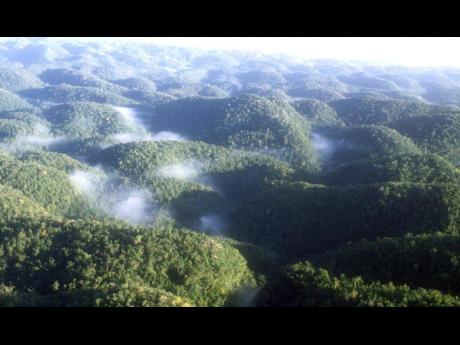Earth Today | Global warming promises mass casualties for natural resources
A WORLD warmed to more than 1.5 degrees Celsius will make mass casualties of the environmental resources, including coral reefs, wetlands and forests that provide a range of financial and other benefits to Caribbean populations but which many have come to take for granted.
“If the 1.5 degrees Celsius threshold is exceeded, coral reefs will be extremely vulnerable to temperature changes,” explains Dr Michelle Mycoo, professor of urban and regional planning in the Department of Geomatics Engineering and Land Management at the University of the West Indies, St Augustine in Trinidad and Tobago.
“Already, more than 75% of the Caribbean’s reefs are considered threatened by bleaching and intense hurricanes, with more than 30% in the high and very high threat categories,” she added.
Mycoo was writing in her 2017 research paper, titled Beyond 1.5 degrees Celsius: Vulnerabilities and adaptation strategies for Caribbean Small Island Developing States.
“It is projected that by 2030, climate-related threats will be high in the Eastern Caribbean and will push the proportion of reefs at risk to 90% in 2030, and up to 100% by 2050, with about 85% at high, very high or critical levels,” she noted.
This has serious financial implications for the Caribbean ,where the profitability of the fisheries and tourism sectors are dependent, at least in part, on the viability of coral reefs.
“Moreover,” Mycoo said, “tourism is a critical economic pillar for many nations, and for those with relatively poor agricultural or industrial sectors, it is one of the few available livelihoods. Estimates suggest that the economic value of Martinique and St Lucia coral reefs comes to US$50,000 per km2 per year.”
On mangroves and forests, which provide exceptional coastal defence in bad weather and serve as carbon sinks, respectively, Mycoo said sea level rise associated with the continued warming of the planet is a distinct threat.
“Mangrove coverage has declined steadily over the past decades at the rate of approximately 0.08% per year. However, the removal or weakening of these natural sea defences by changing land use is making the region’s coastlines more susceptible to climate-change impacts. Mangrove loss causes saline intrusion of freshwater reserves, erodes coasts and destroys wildlife habitat,” she explained.
Her findings as to the impact of warming beyond 1.5 degrees reflect those of the recently published Special Report on 1.5 degrees Celsius of global warming, done by the Intergovernmental Panel on Climate Change. That report has urged significantly scaled-up adaptation and greenhouse gas emissions-reduction actions to thwart the fallout from climate change, which, it has revealed, will be more significant should the world warm up to two degrees Celsius.
EBA SOLUTION
Mycoo, meanwhile, has advanced that need for ecosystem-based adaptation (EBA) to help to address the problems that warming beyond 1.5 degrees Celsius will present for natural resources and the people who rely on them for survival.
EBA, as explained by the International Union for the Conservation of Nature (IUCN), refers to cost-effective, nature-based solutions that can help people adapt to the impacts of climate change. Examples, the IUCN said, include sustainable agriculture, integrated water resource management and sustainable forest management.
Mycoo also urged prioritisation for attracting climate financing.
“Financing for adaptation and resiliency building is important and urgent. Without finance, the adaptation of human settlements, coastal infrastructure, the economy, ecosystems and governance, if temperature rises above 1.5 degrees Celsius, will be impossible. Technology and data acquisition, capacity building and behavioural change, though important, are less urgent and are long-term, ongoing activities,” she said.

